In today’s rapidly evolving legal landscape, law firms are turning to artificial intelligence (AI) to streamline operations, reduce overhead costs, and enhance client outcomes. AI technologies support document review, legal research, risk management, and data analysis. This guide explains how to choose the right AI for your law firm—from assessing practice needs and evaluating vendors to implementation and ongoing support—to increase operational efficiency and improve client service while ensuring compliance and quality.
Transitioning into the main content, we explore critical aspects such as identifying practice needs, selecting legal tech tools for document review, understanding the implementation process, and evaluating return on investment. Each section details AI adoption’s nuances to help law firms remain competitive in an industry that demands both accuracy and speed.
What Are the Key Benefits of Using AI for My Law Firm?
Using AI software improves efficiency, enhances risk management, and reduces operational costs. AI automates repetitive tasks like document review and legal research, accelerating case preparation and increasing data accuracy. For example, legal document management systems powered by AI sift through thousands of pages, highlighting key data points and reducing the need for manual review.
AI also improves decision-making by providing systematic risk assessments based on historical data and predictive analytics. By integrating data quality and real-time feedback, AI platforms help law firms mitigate risks, ensure regulatory compliance, and learn continuously from human feedback, ultimately supporting faster, more informed decisions.
How to Assess Your Legal Practice Needs Before Choosing AI Tools?

Before adopting AI tools, conduct a thorough needs assessment to identify processes that would benefit from automation and improved data security. Start by understanding your firm’s pain points—whether in document review, client management, or financial forecasting—and evaluate existing workflows and performance metrics to pinpoint inefficiencies.
Engage multiple stakeholders including attorneys, paralegals, and support staff for a collaborative assessment. Use data analytics to measure workload distribution and identify where AI solutions, such as advanced document sorting and relevance detection, can reduce bottlenecks. This evaluation ensures that the selected AI tools deliver measurable improvements and a competitive edge.
What Factors Should Influence AI Tool Selection for Different Legal Practices?
The key factors in selecting which AI is best for your law firm will be determined by a number of factors including: the size of your practice, area of specialization, and existing technology infrastructure. Larger firms in corporate or international law often need tools with extensive data analytics and case management capabilities that integrate with legacy systems such as LexisNexis. In contrast, smaller practices may prioritize user-friendly, cost-effective solutions for basic document review and billing automation. Consider data security, scalability, and return on investment to ensure the chosen tool fits your firm’s specific operational requirements.
How Does Practice Size and Specialty Affect AI Tool Requirements?
Small and mid-sized firms may choose simpler, cost-effective AI solutions that integrate with their existing systems, enabling them to compete without extensive IT support. Larger firms require comprehensive platforms that handle diverse tasks, such as litigation support and contract lifecycle management, with features like interdepartmental connectivity and advanced analytics. Specialty practices—whether in intellectual property, labor law, or international trade—need AI tools that understand relevant terminologies and compliance obligations. The ideal solution will be scalable and tailored to your firm’s unique challenges.
Why Is a Needs Assessment Critical for Successful AI Implementation?
A thorough needs assessment aligns technology investments with actual requirements rather than market hype. By identifying workflow bottlenecks and gathering stakeholder feedback, firms can choose AI tools that deliver real improvements, reducing integration and training risks. Prioritizing key functionalities—from risk management analytics to document review automation—ensures a positive return on investment and establishes a foundation for continuous improvement and future growth.
What Are the Best Legal Tech Tools for Document Review and Legal Research?
Effective document review and legal research are essential to legal practice. The best tools use advanced AI algorithms, including machine learning and natural language processing, to quickly scan case law, statutes, and legal documents. They also support electronic discovery by automatically sorting relevant information.
For instance, platforms like Casetext and ROSS Intelligence use AI to sift through millions of documents, highlight critical issues, and suggest lines of argument. This not only reduces research time but also improves legal strategy by uncovering connections that might be missed manually, seamlessly integrating with existing practice management systems.
Which AI Document Review Software Offers the Most Accuracy and Speed?
Leading AI document review software, such as Relativity and LexisNexis CounselLink, leverages state-of-the-art natural language processing to identify, classify, and prioritize critical information. These systems minimize human error by flagging sensitive data and reducing document review times by up to 40%. Their continuous learning features improve accuracy over time, allowing legal teams to focus on strategy while the software handles bulk data analysis.
How Do Legal Research AI Tools Enhance Case Preparation?
Legal research AI tools streamline case preparation by quickly collecting and analyzing relevant information. They parse complex legal texts to identify key issues, provide recommendations, and forecast potential outcomes through predictive analytics. This comprehensive data collection and analysis support the development of robust legal strategies, making case preparation more efficient and cost-effective.
What Features Differentiate Top Legal Tech Vendors?
Top legal tech vendors stand out with accuracy, speed, usability, and strong integration capabilities. They offer seamless connectivity with practice management systems, robust data security, and scalable, customizable dashboards that provide real-time performance insights. Vendors like Thomson Reuters and LexisNexis tailor their solutions to meet the specific demands of legal research and document review, ensuring data remains both quickly processed and highly relevant.
How Can You Implement AI Tools Effectively in Your Legal Practice?

Effective AI implementation requires a structured integration plan and comprehensive training regimen. Begin by identifying which processes will benefit most from automation, then select appropriate tools based on a detailed needs assessment. Establish a clear rollout strategy that includes dedicated training sessions, controlled pilot testing, and robust IT support to address technical challenges.
The goal is to set measurable targets—such as reducing document review time or increasing filing efficiency—and monitor progress continuously to ensure a smooth and transformative adoption of AI-enhanced workflows.
What Are the Steps for Seamless AI Integration and Training?
- Evaluate and map existing workflows to identify automation opportunities.
- Select an AI tool that offers robust support and integration compatibility.
- Conduct pilot tests with a small group to gather usability feedback.
- Deploy the tool firm-wide alongside formal training sessions that cover both technical operation and data interpretation.
- Establish regular training updates and support channels to maintain proficiency and address any operational issues.
How to Overcome Common Challenges in AI Adoption?
Overcome resistance and integration challenges by clearly communicating AI’s benefits to all stakeholders. Provide thorough training and demonstrations to encourage acceptance. Ensure the chosen system meets regulatory requirements and includes strong data security measures. Rigorous testing and a dedicated technical support team can help resolve data migration issues and streamline the transition to full system integration.
What Role Does Ongoing Optimization Play in AI Success?
Continuous optimization is essential after AI deployment. Regular performance reviews and user feedback help recalibrate the system’s algorithms for higher accuracy in document review and risk assessment. Ongoing updates and refinements allow the system to evolve with the firm’s changing needs, ensuring that the benefits of AI are fully realized over the long term.
How to Evaluate ROI and Measure Success After AI Tool Adoption?
Evaluating ROI involves establishing clear performance metrics before implementation and comparing data before and after AI adoption. Key performance indicators include reduced document review times, lower administrative costs, enhanced legal outcomes, and improved client satisfaction. Using analytics dashboards to track these metrics in real time allows law firms to fine-tune workflows and verify that AI tools deliver the expected benefits.
What Metrics Indicate Improved Efficiency and Cost Savings?
Metrics such as a reduction in document review time, fewer errors, and lower administrative workloads indicate improved efficiency. Tracking billable hours and case throughput can also demonstrate cost savings. An overall reduction in overhead expenses, coupled with improved win/loss ratios and client satisfaction scores, provides clear evidence of positive ROI.
How to Track Legal Outcomes Enhanced by AI Tools?
Track legal outcomes with AI for Law Firms, by systematically documenting case results and comparing them before and after AI adoption. Use internal dashboards to monitor win rates, trial durations, and settlement figures. Regular audits and review meetings offer both qualitative and quantitative insights into how AI tools improve case outcomes and support better legal strategies.
Why Is Continuous Support Important for Maximizing AI Benefits?
Ongoing technical and operational support is crucial as legal technology evolves. Regular software updates, refresher training, and dedicated support channels help address glitches and ensure data security. This continuous support allows the system to adapt to regulatory changes and new legal requirements, ensuring that AI tools consistently contribute to improved efficiency and better client outcomes.
What Are the Top Trends and Future Developments in Legal AI Technology?

AI for Law Firms is rapidly evolving. Current trends include expanding automation in legal research, enhanced predictive analytics, and the integration of generative artificial intelligence for drafting. Future developments will likely focus on refining natural language processing and using reinforcement learning for dynamic adaptation based on user feedback. These advancements aim to improve interoperability between legal systems and enhance operational efficiency through mobile applications and cloud-based platforms.
How Is Automation Evolving in Legal Practice?
Automation is moving beyond basic document review to platforms that integrate machine learning and predictive analytics. Modern solutions automate routine tasks, compliance checks, and even case prediction, enabling legal teams to focus on high-level analysis and strategy. Continuous learning mechanisms ensure that these systems adapt as legal practices and case complexities evolve.
What Emerging AI Features Should Legal Professionals Watch For?
Legal professionals should watch for features such as enhanced sentiment analysis, improved document analytics, and advanced predictive modeling. These tools can interpret judicial tones, highlight inconsistencies in filings, and forecast case outcomes based on historical data. User-friendly interfaces and better integration with legacy systems will further ease AI adoption and drive future advancements.
How Will “AI for Law Firms” Shape the Future of Legal Services?
AI will fundamentally transform legal services by refining legal research, case management, and client interactions. As AI systems become more accurate and efficient at handling complex reviews and risk assessments, they will augment human judgment rather than replace it. This evolution promises faster, more cost-effective services, with AI enabling innovations such as real-time case monitoring and dynamic contract management—all contributing to a new era of precision and enhanced client outcomes.
How to Choose AI Vendors Without Bias: What to Look for in Legal Tech Providers?
Contact McNeal Law
Choosing vendors without bias involves a methodical approach from a skilled programmer that understands your legal profession. Establishing criteria that focuses on accuracy, integration, data security, scalability, and cost-effectiveness is crucial for success. Evaluate McNeal.law’s programmers on technical performance and track records by reviewing our demos, and client testimonials. A vendor-neutral evaluation involving IT, legal experts, and management helps mitigate personal biases and ensures that the selected company and AI tool aligns with your firm’s strategic needs.
What Questions Should You Ask Potential AI Vendors?
Ask targeted questions to reveal a vendor’s technical robustness and support capabilities. Inquire how the AI tool integrates with existing systems, what metrics are tracked for efficiency, and request case studies or testimonials from similar legal practices. Questions about data security measures, pricing structures, scalability, and ongoing support are also critical to ensure the vendor’s long-term roadmap matches your firm’s requirements.
How to Compare AI Tools Objectively for Your Practice?
Compare AI tools using side-by-side feature matrices and independent reviews. Create a comparison table that assesses accuracy, speed, integration ease, cost savings, and customer satisfaction. Objective evaluations should consider learning curves and required support services to ensure that the final decision is evidence-based and tailored to your practice’s needs.
Why Is Vendor Independence Important for Tailored Solutions?
Vendor independence is key to obtaining tailored solutions. Independent vendors are typically more flexible and open to customization, allowing your firm to fine-tune AI tools according to specific operational requirements. Such vendors are less limited by proprietary constraints and more transparent about their methodologies, ensuring robust data security and integration capabilities.
Table: Comparison of Top Legal Tech Tools for Document Review and Legal Research
Before diving into the final topics, the following table offers a detailed comparison of leading legal tech tools based on key attributes, benefits, and performance metrics.
| Legal Tech Tool | Key Feature | Benefit | Efficiency Gain (%) | Integration Capability |
|---|---|---|---|---|
| Casetext | Advanced natural language search | Faster legal research | 35% | High |
| ROSS Intelligence | Predictive analytics | Enhanced case preparation | 30% | Moderate |
| LexisNexis CounselLink | Automated document review | Reduced review time | 40% | High |
| Relativity | Comprehensive e-discovery | Accurate risk assessment | 38% | High |
| Thomson Reuters | Real-time data analytics | Streamlined case management | 32% | Moderate |
This table provides an at-a-glance comparison of AI tools for legal research and document review, helping practice leaders benchmark performance and select the solution that best aligns with their operational goals.
Frequently Asked Questions
Q: What types of legal tasks can AI tools automate in a law firm?
A: AI tools can automate document review, legal research, regulatory compliance checks, e-discovery processes, and administrative tasks, allowing lawyers to focus on complex legal strategies and client relations.
Q: How do AI tools improve risk management in legal practice?
A: AI tools offer predictive analytics and real-time data assessments to identify potential risks and inconsistencies in legal documents, aiding compliance and mitigating liability.
Q: What costs can law firms expect to save by implementing AI technologies?
A: Firms can save on administrative costs, reduce document processing times, and optimize resource allocation, with efficiency improvements often reaching 30–40%.
Q: What are the most important performance metrics to track after AI integration?
A: Important metrics include document review time, error reduction, client satisfaction scores, win/loss ratios, and overall reductions in administrative workload.
Q: How should a law firm begin the process of AI implementation?
A: Begin with a detailed needs assessment to identify workflow inefficiencies, pilot the chosen AI tools in a controlled environment, provide comprehensive user training, and set clear performance benchmarks.
Q: Are there risks associated with AI adoption in legal practice?
A: Yes, risks include data security issues and integration challenges, which can be mitigated through rigorous vendor evaluations, continuous training, and robust cybersecurity measures.
Q: What future developments in legal AI technology should law firms be aware of?
A: Future developments include enhanced natural language processing, more sophisticated predictive analytics, improved interoperability between systems, and increasingly customizable AI solutions.
Final Thoughts
The advancements in AI technology offer transformative potential for legal practice by streamlining workflows, reducing costs, and enhancing legal research and document review. By conducting thorough needs assessments, carefully selecting unbiased vendors, and ensuring continuous support, law firms can successfully integrate AI tools to achieve significant efficiency gains. With ongoing optimization and strategic implementation, AI is set to revolutionize legal services, providing a competitive advantage that delivers better legal outcomes and improved client satisfaction. Legal professionals are encouraged to embrace innovative AI solutions as a vital step toward future-ready legal service delivery.
Need AI for Your Law Firm?
Contact McNeal Law to schedule a free consultation to find out more about how we can help integrate AI for your law firm.

